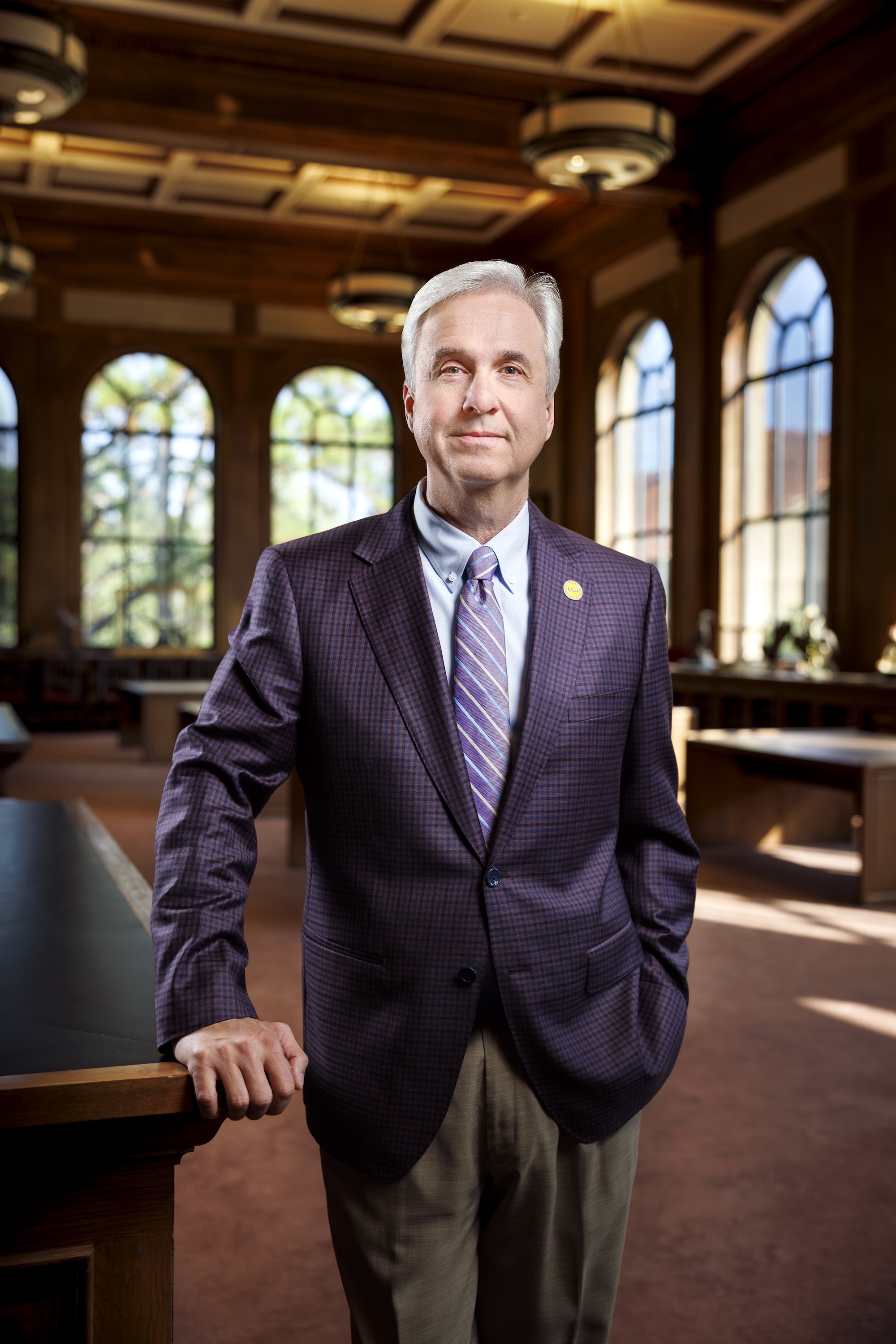Biography

Wade Rousse, Ph.D
Wade Rousse serves as the 29th President of Louisiana State University. An accomplished economist and higher-education leader, Dr. Rousse brings extensive experience in academic administration, economics research and private sector management to Louisiana’s flagship university system.
Prior to joining LSU, Dr. Rousse served as the 8th President of McNeese State University, where he led a campus-wide turnaround following years of enrollment decline and the disruption of major natural disasters. He emphasized shared governance, transparent communication, and measurable outcomes as he led efforts to improve recruitment and retention. Under Rousse’s leadership, McNeese reversed a 14-year enrollment decline, including a 13% increase in first-time freshmen, and achieved full occupancy in campus housing for the first time in more than two decades.
Before becoming President, Dr. Rousse served as the McNeese’s Executive Vice President, Vice President for University Advancement, and Dean of the College of Business. He consolidated seven separate units into a modern Office of Advancement - integrating athletics, alumni relations, and fundraising - to build new revenue and engagement strategies. Under his leadership, McNeese Foundation assets grew from $95 million to $130 million, and his team raised more than $40 million in new philanthropic support. He also secured an $8 million public-private partnership to establish the university’s Liquefied Natural Gas (LNG) Center of Excellence and advanced major corporate partnership and facility naming initiatives.
Earlier in his career, Dr. Rousse held academic leadership and research roles at Northern Arizona University and served as a policy research specialist with the Federal Reserve Bank of Chicago, focusing on U.S. payment systems and financial market dynamics.
Dr. Rousse began his career in the private sector, working his way from blue-collar laborer to partner and co-founder of a successful marine logistics firm in Louisiana. He later founded a successful alternative investment company.
A first-generation college graduate and Louisiana native, Dr. Rousse earned a Ph.D. and M.A. in Economics from the University of Illinois Chicago, an MBA from the University of New Orleans, and a B.S. in Business from Nicholls State University. His research has been published in peer-reviewed journals including the Journal of International Financial Markets, Institutions & Money and Sustainability. He is a member of the American Economic Association, Western Economic Association International, and the Financial Management Association International.


